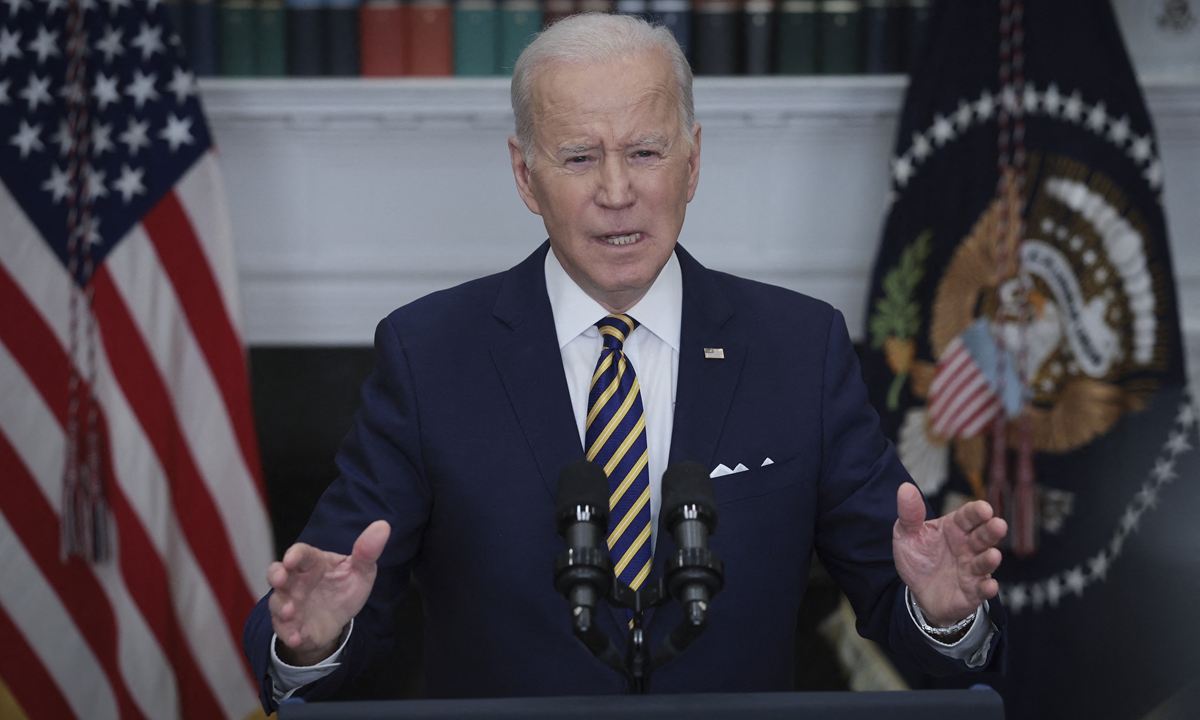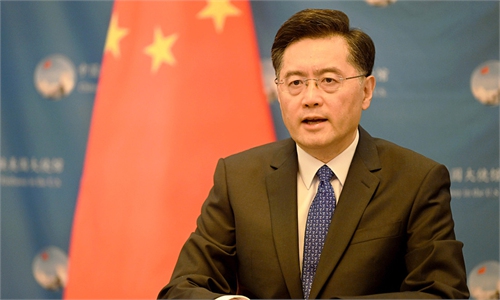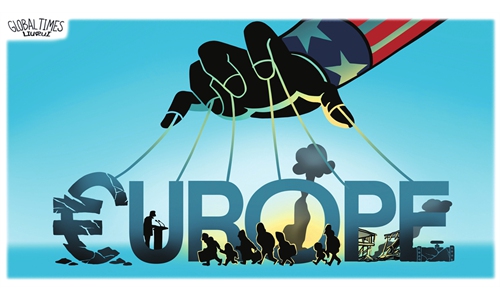Biden’s Brussels trip eyes further sanctions on Russia but EU should regain its strategic autonomy: expert

US President Joe Biden. Photo: AFP
As US President Joe Biden is set to meet NATO and EU leaders on Thursday in Brussels with plans of new sanctions against Russia, analysts said that Europe should strive to regain its strategic autonomy as blindly following the US does not serve the EU's best interests.
Biden will also discuss longer-term adjustments to the NATO force posture and contingencies in case of nuclear weapons are used, and he will also announce "joint action" on enhancing energy security in Europe, which is highly reliant on Russian gas, Reuters reported, citing US National Security adviser Jake Sullivan.
Biden's visit to the EU to meet with heads of EU and NATO countries amid the Ukraine crisis has attracted global attention. Poland will also be one of his stops, but not Ukraine, White House Press Secretary Jen Psaki told a press conference on Sunday.
Biden will use his attendance at the NATO meeting to further boost the leaders' confidence and the will to not compromise easily with Russia, Sun Keqin, a research fellow at the China Institutes of Contemporary International Relations, told the Global Times Wednesday.
Biden's main purpose is to further unify the trans-Atlantic allies' stance on Russia to increase pressure on Russia, given the fact that although the US and Canada have banned energy imports from Russia, some European countries, especially Germany and France, which are more reliant on Russian energy, have not stopped energy imports from Russia, which the US thinks has alleviated the impact of sanctions on Russia, Cui Heng, an assistant research fellow from the Center for Russian Studies of East China Normal University, told the Global Times.
The US and its allies have imposed sweeping sanctions against Russia, and although not directly sending troops to Ukraine, many European countries and the US have increased supplies of weapons to Ukraine.
The US is not a country in the European continent and it is considering US-Russia relations and EU-Russia relations from its own global strategy, which means it has some different interests with EU over Ukraine, analysts said, warning that closely following the US will only make the EU one of the biggest losers in the crisis.
Cui noted that the current leaders of French and Germany play a limited role in the conflict, and the EU has been deeply abducted or influenced by NATO and the US, losing strategic independence.
Aside from energy, the US and EU have many other different interests in the Ukraine crisis. Compared with the US, who is adding oil to the conflict as the clashes fit its national interests, the EU hopes to end the confrontation and promote peace talks, but it is not easy to do, Cui said.
Cui noted that the US has created the atmosphere of criticizing and sanctioning Russia as the only "political right," working with media to agitate anti-Russia sentiment globally and coerce more countries, companies, celebrities and people in different countries to join.
Since the first day of the military clashes in Ukraine, the US and its allies have continued pressuring China to condemn Russia. For example, when having an interview on a US talk show, Qin Gang, Chinese Ambassador to the US, was interrupted more than 20 times by the host, with the latter repeatedly asking the envoy to condemn Russia over the Ukraine crisis.
As China has always opposed unilateral sanctions, analysts said that imposing more sanctions on Russia will not help ease the Ukraine crisis and the EU should make more independent efforts to promote peace talks.
Receiving thousands of refugees, helping with the rebuilding after the military clashes and swallowing the bitter fruit of an energy shortage… these are part of the problems that the EU needs to face, Sun said, noting that Europe should make more efforts to adjust its security system and regain independence.



